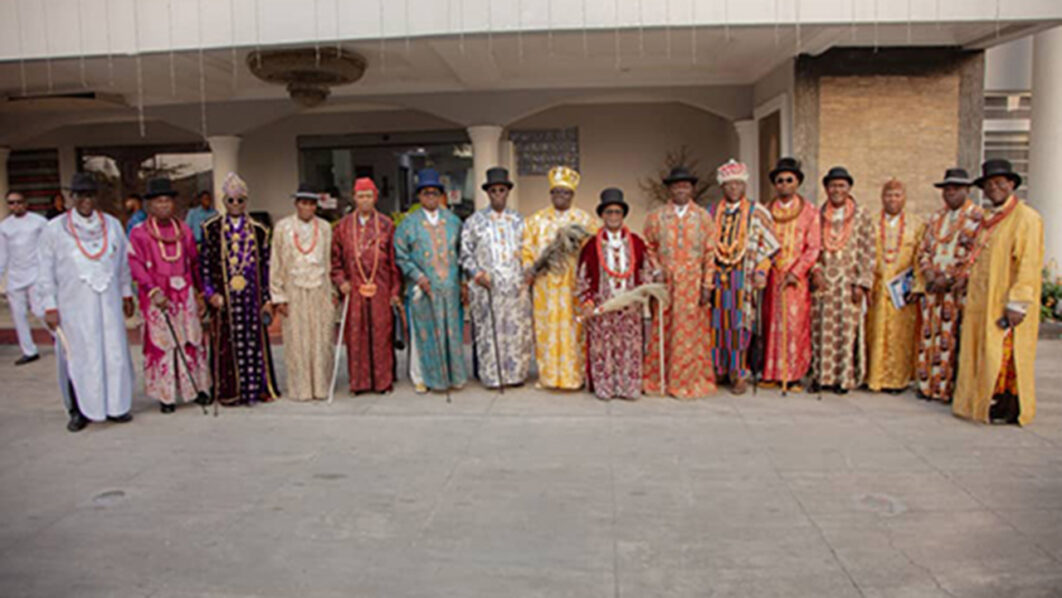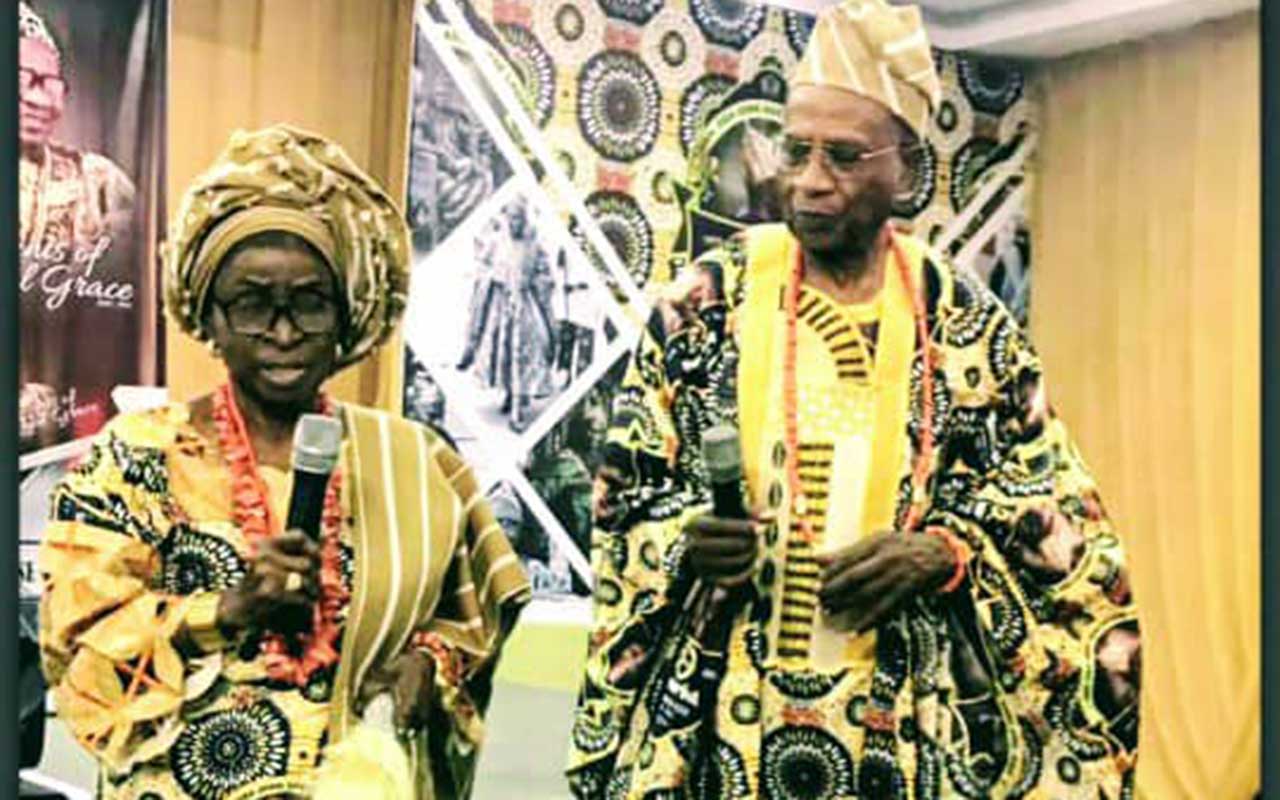
Traditions and customs are both beliefs and practices that are passed down through generations and are a part of a group’s core identity. In ordinary parlance, a traditional ruler is the custodian of the traditions, history and customs of an ethnic group of individuals, and who is appointed by such individuals to rule, govern and administer justice in line with the laid down customs and traditions of the people.
According to experts, traditional rulers play key roles in resolving conflicts within their communities, using their knowledge of local customs and traditions, hence the need for regular engagement and partnership to avert crisis. Over the years, this role is giving way for modern demand.
Recently, there have been stories of strained relationships between companies, institutions, multinationals and their host communities, majority of which ended on a sad note, which most times heighten tension and hinder sustainable development
Though several factors have been suggested for this lingering problem, like unfair compensation, land acquisition and displacement, non-adherence to local employment and environmental factors among other, but lack of constitutional roles for traditional rulers appears to be the major crack, causing misunderstanding between establishment and their host communities.
Now, to achieve this, the Niger Delta Development Commission (NDDC), seems to have taken the bull by the horn, as it has intensified its partnership and collaboration with its host communities.
The NDDC, through its Community and Rural Development (CRD) Directorate, engaged with select community leaders under the aegis of the Traditional Rulers of Oil Mineral Producing Communities (TROMPCON) in Akwa Ibom, Cross River, Rivers, Bayelsa, Abia, Imo, Delta, Edo and Ondo states.
The initiative by the NDDC under the leadership of Managing Director/Chief Executive Officer, Dr. Samuel Ogbuku in partnership with Peace and Development Projects (PEDEP), Jobelle Crescent Global Services, Wealthline Nigeria Limited, FUNSGLO Resource Limited and Softlife Consult held across five locations of the Niger Delta with the theme: “Emerging Trends In Rural Governance”. The engagement offered opportunity for the traditional rulers to brainstorm on contemporary issues inhibiting peaceful coexistence and sustainable development in the Niger Delta region and the way forward.
The lead consultant for the initiative who is the Director, PEDEP, Francis Abayomi, noted that the NDDC is concerned about enhancing peace and security and fostering inclusive engagement of stakeholders in the local communities to promote ownership of project initiatives towards accelerating sustainable development in the region. According to him, peace and security, is vital to sustainable development which are the cardinal mandate of the commission.
Across the five locations of the engagement: Porthacourt (Rivers & Bayelsa), Uyo (Akwa-Ibom and Cross Rivers, Warri (Delta and Edo), Owerri (Imo and Abia) and Igbokoda in Ondo State, the monarchs unanimously identified lack of Constitutional roles for traditional rulers as a major setback to peaceful and inclusive community governance.
In Warri, Delta State, traditional rulers from Edo and Delta states blamed the challenges of peaceful and inclusive governance in local community on lack of constitutional roles. The Chairman of TROMPCON, Delta State, who is the Ovie of Ozoro Kingdom, Isoko North Local Council, HRM Anthony Ogbogbo Ibuka 1, said the programme availed them opportunities to brainstorm on contemporary issues inhibiting development in the Niger Delta region, adding that through the discourse they were able to identify and highlight notable challenges of the Petroleum Industry Act (PIA), as it affects the host communities.
Identifying some challenges confronting TROMPCON, HRM Ogbogbo, said: “the absence of constitutional roles for traditional rulers and power to back up responsibility constitute hindrance. We, the traditional rulers are ready to work, but we are frustrated and hampered by lack of Constitutional provisions.
“Government should recognise the roles of traditional rulers and ensure operational guidelines to that effect to enable them contribute their quota more for effective governance. In this regard, advocacy to integrate traditional rulers should be sustained and vigorously pursued. Lack of Constitutional roles for traditional rulers has been hampering our contributions. It brings us downward.”
In Rivers, the monarchs noted that transparency and collaboration between oil multinationals, government agencies and local communities are the antidotes to peace and development in the region.
The traditional ruler of Kerike Kingdom in Rivers State, Air Commodore Tansiki Ogube(rtd) said the lack of transparency and collaboration has led to conflicts in the region.
He lamented that the oil companies are not dealing with the traditional rulers, but rather with people perceived to be violent, especially those who do not have interest in the development of the communities.
The monarch emphasised that the traditional rulers are not against development, insisting they should be carried along in the decision-making process.
On his part, the TROMPCOM Chairman in Bayelsa State, Dr. Toboro Andy Godwill, emphasised that collaboration is key to fostering peace in the region.He noted that the traditional institution and the government must work together to ensure that developmental projects are implemented without hoarding information.
“Today’s leadership is based on development, and development should be enhanced at the all levels of the society including the at the local communities. If those who are providing development in the community are open-minded, as we are doing here, there will be collaboration between the traditional institution and the government,” he said.
On their part, the traditional rulers from Akwa Ibom and Cross River states called on the NDDC to address the longstanding issues hindering the completion of the Calabar-Itu Federal Highway.
The Paramount Ruler of Eket local council and Akwa Ibom TROMPCON Chairman, HRM Etim Charles Abia, expressed deep concern over the stalled project. HRM Abia also urged the NDDC to support state governments by procuring modern farming equipment to boost agricultural productivity in the region. Highlighting the fertile lands along the Calabar-Itu Road, he suggested that Cross River State could produce enough rice to exceed national consumption if supported with the necessary tools.
Resource persons across the five locations emphasised the need to address the challenge of insecurity and violent conflicts which pose significant challenges to development in the region.
The resource persons emphasised that traditional rulers are key to community development. Conflicts and crises in society are evolving daily, and it is important to strategise and develop capacity to handle these issues. Visionary leadership by traditional rulers was reiterated as driving force for enduring peace, security, and development initiatives.”
The Odogun of Igbekebo Kingdom, Ondo State, Oba Bamidele Dabo, who spoke on behalf of the traditional rulers, during the workshop, held at Igbokoda, the headquarters of the Ilaje local council, said it was time to stop the abandonment of projects of general importance for the economic prosperity of residents.
He said many projects of the NDDC in various communities have been abandoned by the contractors due to a lack of proper supervision.
“We urge the Niger Delta Development Commission (NDDC) to give more recognition to traditional rulers in oil-producing areas of the state for mutual relationships between the host communities and the agency.
“There is a need for urgent completion of the long overdue Sabomi-Igbotu road and other abandoned projects in the region. The NDDC should also embark on capacity building and infrastructural development,” he said.
In Owerri, where traditional rulers from Imo and Abia states were hosted, the traditional ruler of Mgbirichi/Agbakuru in Ohai/Egbema local council and former national chairman of TROMPCON, Eze Akawueze Raphael Ikegwuruka, was sad that in most cases, their opinions are not given adequate attention. Empower these people you depend so much on, to provide peace and security. Things will change.”
One of the resource person Dr. Eghaire Benson, urged the traditional rulers of the oil communities to enthrone peace, security and development in their domain through the management of information at their disposal.
In two separate presentations; “Fostering sustainable peace in Nigeria Delta communities: Leveraging peace building skills of traditional rulers,” by Dr. Evelyn Ijeoma Orji; and “Organising critical community stakeholders for partnership and governance: How Traditional rulers in the Nigeria Delta can drive the process,” by Dr. Carol Bichene Ebuta, the resource persons lamented the frequency of communal conflicts and lack of local mechanisms to address them.
They advised the monarchs to jettison the “Not my Child Syndrome,” which propagates “I don’t care” attitude. Dr. Carol Ebuta urged the traditional rulers to capitalise on trust and moral authority.
One of the resource persons, Stanley Okereke, a Climatologist and Peace Advocate, called on all stakeholders, especially the government, oil and gas companies and others to work together in synergy to avoid retrogressive development. Okereke emphasised the need for traditional rulers to utilise their indigenous knowledge as local content into peace initiatives in the Niger Delta region, noting that the monarchs have key roles to play in the narratives towards attaining and sustaining peaceful co-existence.
According to Okereke: “If the traditional rulers are playing their roles effectively and efficiently, then the issue of violent conflicts will actually be a thing of the past. The way of managing conflict or preventing conflict will help in ensuring sustainable development in the Niger Delta region, as any development without sustainability is a waste of resources.
“Consequently, we need to develop a framework that will ensure that the traditional rulers are integrated into the system for managing peace and conflict in the region with a view to putting in place sustainable peace in the entire Niger Delta region.”
One of the resource persons who is the former Chief Press Secretary to Ondo State Governor, Eni Akinsola, solicited for more synergy between community stakeholders in the oil-rich region and the Commission. Akinsola urged traditional rulers to foster peace and security in their communities so as to enhance enabling environments for the provisions of projects for sustainable development. Mr. Akinsola urged the monarchs to always identify pressing issues and needs in their communities for the attention of both the government and the NDDC.






